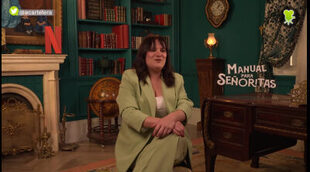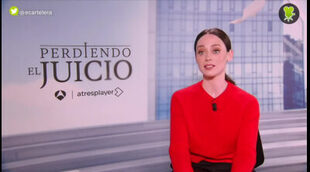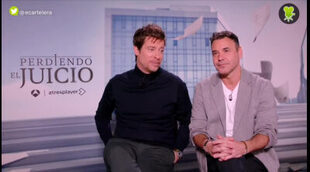Beloved 90s sit-com 'Friends' has been on the receiving end of a bit of hate recently, most prominently for its lack of diversity, whilst the newly released 'Black Panther' has been championed for its inclusivity. Yet, at the same time, Disney have been accused of brown-facing on it's latest film, 'Aladdin'. Such controversy surrounding diversity has led us at Movie'n'Co to delve into the world of contemporary television to find out just how deep of a problem inclusivity truly is.
-

-

-

-

-

-

It's only logical that we tackle the one that started it all, dubbed "the whitest show in the whole world" (BBC), with each of its six main characters being white (Courteney Cox, Matthew Perry, Matt Le Blanc, Jennifer Aniston, Lisa Kudrow & David Schwimmer), it's not surprising that many have criticised 'Friends' in today's climate. What is surprising however, is how that same criticism has not been applied to more recent TV series like 'Gossip Girl' and 'Riverdale' (both CW shows).

'Friends' aired from 1994 to 2004, and "there were only two notable non-white characters on the show: Ross' girlfriend Julie and Dr Charlie Wheeler" (Independent). 'Gossip Girl' aired between 2007 and 2012, yet there's been no mention of a lack of diversity in the latter series, despite starring regular Jessica Szohr as "the only non-white character... Vanessa Abrams" (Elle). Similarly to the 'Friends' situation, it's been obvious to us contemporary 'Gossip Girl' viewers that there's a considerable lack of diversity among the main cast, but it seems as though the creators (Stephanie Savage, Josh Schwartz & Joshua Safran) were aware of it all along. The three sat down with Vulture just last September when Safran stated "when I look back on Gossip Girl, the only things I regret were not as much representation for people of color (sic) and gay story lines". Whilst we're all here for acknowledging mistakes, having done so nearly six years after the show ended is a bit rich and such a comment is reminiscent of Kal Penn's response when Disney were confronted over accusations of brown-facing. "Someone just didn't want to spend the $ to do it right", tweeted the actor, who was rightly annoyed by Disney's oversight, in the case of 'Gossip Girl', we suspect it's more a case of someone not wanting to put the effort in.
'Gossip Girl' isn't the only other show on our radar however, because we've also noticed a lack of diversity in supposedly inclusive show, 'Riverdale'. The CW series, which streams on Netflix in the UK, showcases an all-white main cast, consisting of Archie (K.J. Apa), Jughead (Cole Sprouse), Veronica (Camila Mendes) and Betty (Lili Reinhart). Viewers will be quick to respond that there are various characters of colour in the series, such as that of Principal Weatherbee (Peter Bryant), Mayor McCoy (Robin Givens) and her daughter, former Pussycat frontwoman, Josie (Ashleigh Murray). A more profound look into the storylines however, will show just how little of an impact their presence has. One outlet suggested that Asha Bromfield's Melody Valentine might as well not even be there: "If you replaced her character with a lamp I'm sure hardly anyone would notice"(Vulture).
Behind the scenes 'Riverdale' is pretty inclusive: K.J. Apa, is of Samoan heritage, Camila Mendes is Brazilian and her on-screen mother, Hermione Lodge (Marisol Nichols) is of Mexican descent, but that doesn't always seem to be depicted on the show. Beyond Nichols' character, Hermione, throwing the word, "mija" around, there's not really much emphasis on the Lodge's hispanic heritage. 'Riverdale''s oversight when it comes to issues of diversity was perfectly epitomised when Ross Butler, the original actor behind Reggie Mantle, left the series only to be replaced by Charles Melton. Butler is of Chinese-Malaysian descent, whereas Melton is Alaskan.

In a few season 1 episodes, Archie dated Valerie Brown (Hayley Law), the third Pussycat band member. "You would think the fact that she'd dated a main character would place more focus on Valerie, maybe give her some sort of development arc", state Bustle, but alas that's not the case at all. In fact, we know very little about the character, besides her interest in music. As Vulture put it, black girls "deal with romantic foibles, desires, and fears just as richly complex as the white leads". The statement, however powerful, is double-ended because The Tempest reported that "in many shows, characters from a marginalized (sic) group aren't allowed to simply exist. Instead, they must embody and become a representation of the entire group". Adding to that, Vulture pointed out that, "it's important to remember that black girls' lives aren't solely defined by racism". In a different season 1 episode, Josie schools Archie: "Do you know why we're called the Pussycats? Because we have to claw our way into the same room that you can just waltz into". Both articles seem to be highlighting an important issue here: 'Riverdale' "is falling into the same trap that every other show without nearly so diverse a cast falls into: focusing only on the white characters" and falling back on the non-white cast when it fits the storyline. Asha Bromfield spoke to TeenVogue recently and summed up the whole situation. "I don't want to see (our) characters fall into archetypes or stereotypes of what society thinks that they should be. I just want to see their humanity. I'd love to see their relationships [with] each other as a sisterhood. I'd also love to see some backstory about how they met and who they are as people. What are they interested in? What makes them laugh? What makes them cry?"
In other words, what we're hearing is, shows like 'Riverdale' should aspire to be more like 'New Girl' & 'Brooklyn Nine-Nine'. The former show "features characters from all backgrounds, including Winston (Lamorne Morris) and Coach (Damon Wayans Jr.), two black men, and Schmidt (Max Greenfield), a Jewish man", not to mention his Indian wife, CeCe (Hannah Simone) (Her Campus). Each of the characters, including those of Jake Johnson and Zooey Deschanel, are developed equally, and despite being the protagonist, we know little more about Jess than we do about her on-screen counterparts. "'Brooklyn Nine-Nine' easily has one of the most diverse casts on television. Unlike certain other shows, it actually reflects the multicultural landscape of New York City. But the best thing about the show is that it never makes a big deal out of its diversity. Characters' racial and ethnic backgrounds are never used as punchlines: They are simply a part of who they are" (MIC). In one episode, protagonist, Jake (Andy Samberg) made light of their diverse precinct: "So, I'd just like to say I am happy to be here with my family. My super weird family with two black dads (Terry Crews & Andre Braugher), and two Latina daughters (Stephanie Beatriz & Melissa Fumero), and two white sons (Joe Lo Truglio & Dirk Blocker), and ... Gina (Chelsea Peretti). And I don't know what you [Scully] (Joel McKinnon Miller) are".

Aside from television productions, streaming sites like Netflix seem to have paved the way for diversity in recent years. Vice reported that "Netflix has continued to green-light more diverse shows - not just as a token gesture, but as a commitment to real representation across genres and behind the scenes. Rather than just throw in a few non-white characters to balance out the cast, Netflix's programming slate actively explores the specificities, cultures, and lived experiences of marginalized (sic) groups that don't often get to tell their stories - or have them told at all".
Indiewire, brought up the issue of diversity with a range of non-white professionals in the TV industry: "You hire what's comfortable, what's familiar, what you know". Here's to hoping that recent Oscar winner Frances McDormand's advocation for "inclusion riders" will help to tackle this issue.
Our findings
All in all then, it does appear that TV has come a long way in terms of diversity, inclusion and representation. Taking 'Friends' as our worst offender, it's clear that overtime the industry has learned that people of colour exist and are not invisible, and this is reflected in the growing number of diverse characters we see on TV today. That said however, there is another issue that's slowly rearing its head; it's one thing to portray people of colour on television, but it's another to actually give them worthwhile storylines and screen time. It appears we're stuck in between the two at the moment, with some shows going all the way and others just conforming to tick the box on diversity.
In response to an ignorant Metro article: "There are other accusations that Friends is too white and middle class - but that's the environment the writers were familiar with, and the one they wanted to pick, so why on earth are we now holding that against them?", We'll leave you with an excerpt from Idris Elba's speech to parliament back in 2016. "...because it's TELEVISION?!"




